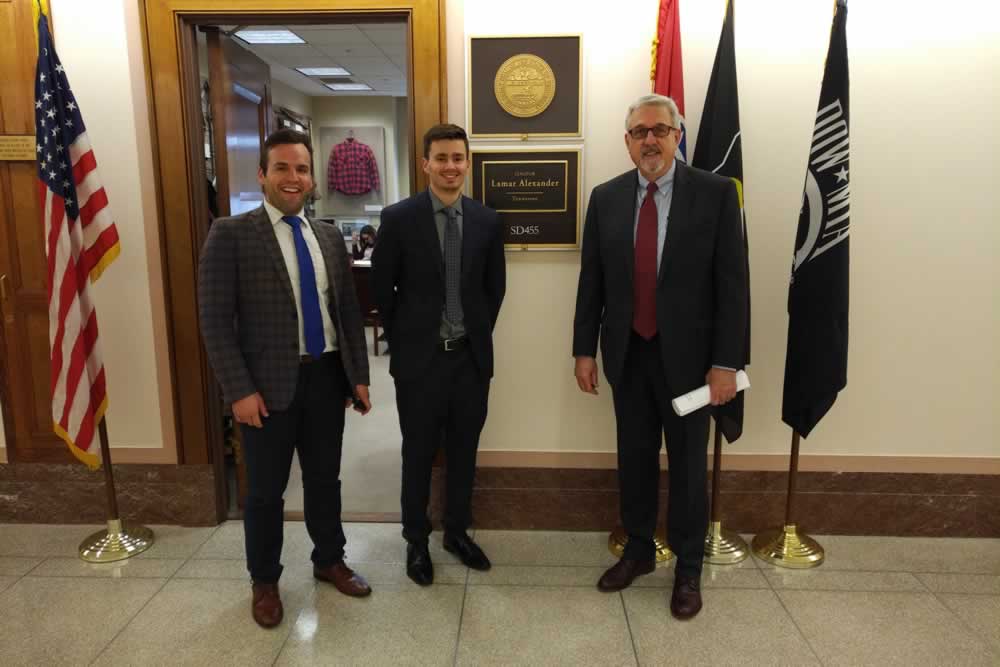President Biden was sworn in as the 46th President of the United States on January 20 and quickly issued a series of Executive Orders and signed memoranda. Prior to taking office, the President-elect had released legislative proposals on comprehensive immigration reform and COVID-19 relief.
Issue Area Review And Forecasts include: Day One Actions, Covid-19, Climate, Education, Healthcare, Housing, Immigration, Policing Reform, Tax, & Infrastructure
DAY ONE ACTIONS
On January 20, Inauguration Day, President Biden quickly issued a series of Executive Orders (EO) and signed memoranda and letters that primarily concern COVID-19, climate change, and racial equity. The Biden Administration also issued a memorandum stating its intentions to freeze and explore Trump Administration “midnight rules” to overturn, as it can withdraw regulations that were not published in the Federal Register by January 20.
COVID-19
On January 14, then-President-elect Biden unveiled the first part of an aggressive two-phase plan aimed at stimulating the U.S. economy due to the challenges of the COVID-19 pandemic. The first step, the America Rescue Plan, is a $1.9 trillion economic relief proposal that includes an additional $1,400 direct payment to eligible individuals (on top of the $600 checks approved by Congress in December) along with $350 billion for direct aid to local and state governments to balance budgets while maintaining essential services. The plan also proposes expanding supplemental federal unemployment benefits (set to expire in March for many workers). It also proposes: additional small business relief and an additional $25 billion for renters; increased funding for vaccine distribution (including deploying the National Guard to assist), testing and contact tracing; and funding to reopen K-12 schools. It would also extend the eviction moratorium to September, provide funds for legal assistance for households facing eviction or foreclosure, and extend and expand Emergency Paid Leave (including reimbursing local governments for the cost).
CLIMATE
President Biden has stated that environmental justice and climate issues are priority regulatory and policy issues for his Administration. In an EO, President Biden directed agencies to reexamine over 100 Trump Administration environmental policies. His intentions specifically include creating a path to eliminate harmful emissions on the power grid by 2035 and economy-wide by 2050.
PARIS CLIMATE AGREEMENT
On Inauguration Day, President Biden began the process to rejoin the 2015 Paris Agreement, which is a legally binding international treaty on climate change. In 2017, President Trump announced the U.S. would cease participation in the agreement. It will take 30 days for the U.S. to officially rejoin the Paris Agreement, and the Biden Administration will have to submit new climate targets on what the country expects to accomplish.
KEYSTONE XL PIPELINE
On January 20, President Biden announced that he would revoke a key permit for the proposed Keystone XL pipeline, which is an oil pipeline system in Canada and the U.S. The pipeline has been a contentious project for the last decade, with the Obama Administration originally blocking its development. This move will likely not be well accepted by the Canadian government, which has argued that the pipeline is a better environmental choice for transporting oil. This action may lead to legal challenges by TC Energy, the developer of the pipeline.
HEALTHCARE
As discussed above, President Biden’s first priority is to use every tool at his disposal to get the COVID-19 pandemic under control. Shortly after the 2020 election, he conveyed this goal to a bipartisan group of governors convened by the National Governors Association and said, “It’s going to take time. It’s going to take coordination. It’s going to take the federal government and state governments working hand in glove, working together.” To control the raging pandemic that has claimed over 400,000 lives and infected nearly 25 million in the U.S., the President has said his Administration’s actions will be guided by science. To that end, his advisors are focusing on getting more people to wear masks and better adhere to other social distancing measures, and speeding up the delivery of millions of COVID-19 vaccinations.
Family Enterprise USA advocates for American Family business. We help family businesses communicate their challenges and contributions to American economic freedom to Legislators. We represent all American family businesses; not just specific industries and provide research to enhance the opportunity for success. We help family businesses continue to establish their unique business legacy. Family Enterprise USA is a 501(c)(3) non-profit organization.. Family foundations can donate.

